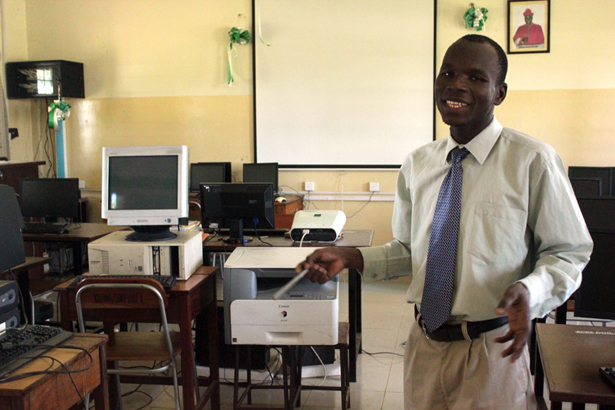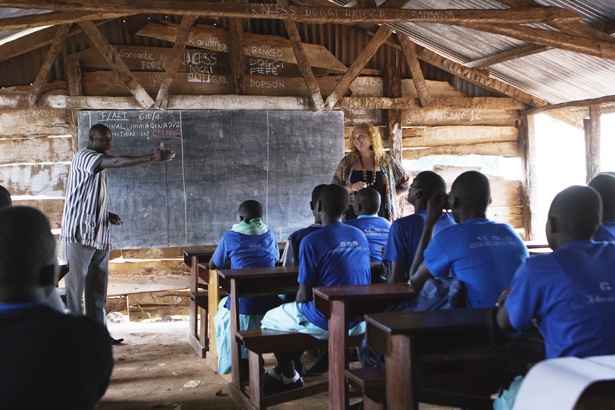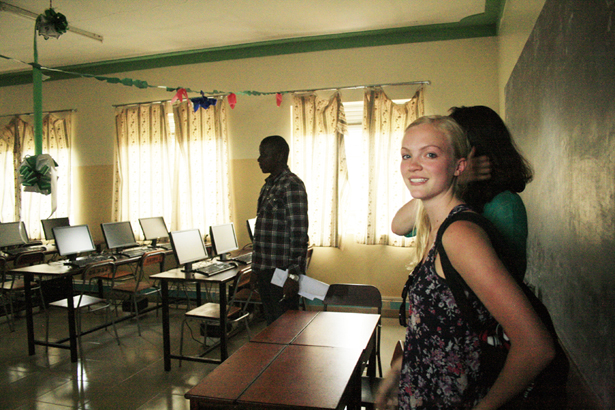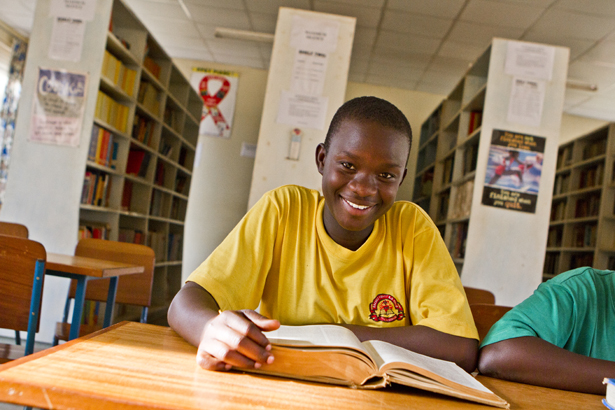The year has been a full one for the Schools for Schools (S4S) team, between hardware projects (the construction of buildings) and software projects (trainings and capacity building). These are some of the highlights from the year:
Computer literacy can be low in northern Uganda, even among teachers who are responsible for preparing students to enter the modern work force. To enable teachers to be comfortable using and teaching with computers, S4S held computer trainings to share basic skills and teach commonly used programs.
In June, the 6th annual Teacher Exchange (TEX), in which international educators spend six weeks team-teaching in northern Uganda, took place. The focus for this year was student-centered teaching. The traditional method of teaching in Uganda is very teacher-focused, with teachers lecturing and students taking notes the entire time. During the TEX, Ugandan teachers had a chance to observe and learn about different methods that will help build their relationships with students.
“I think teachers love the fact that they can actually engage students,” said Jude, the S4S program manager. “The student-teacher relationships are now improving.”
The handover of a beautiful computer lab at Anaka Secondary School, attended by some of the students who helped raise the funds, was a high point in July. According to the head teacher at Anaka SS, having this computer lab means big things for the school.
“We are entering a new era for the school, because now we have computers,”” said Ojok Matthew. “The students here never thought they would have such an opportunity at our school.”
The Knowledge of Behavior and Self (KOBS) curriculum was designed to be a tool for teachers to help students gain emotional literacy and work through the social and personal challenges of high school, as well as issues specifically affecting the region. This year, a conference was held to evaluate the effectiveness of the program. Comparative surveys of students who took the KOBS classes and students who did not showed that there was improvement in how well the KOBS students knew themselves. They also self-reported that they were more well-adjusted and felt that their behavior had improved.




Think people should hear about this?